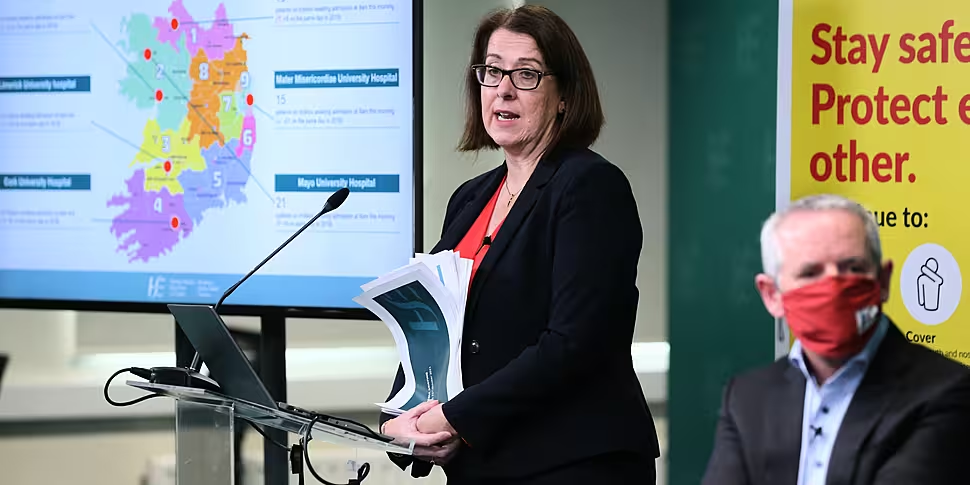Irish hospitals are seeing a level of activity they usually only see in "the depths of winter", the HSE's Anne O'Connor says.
The Chief Operations Officer says some hospitals are already cancelling elective procedures due to the level of pressure.
The latest HSE figures show there are 448 patients in Irish hospitals with COVID-19 this morning, including 88 in ICU.
That's a sharp rise on the figures reported in recent weeks.
At one point this morning, there were just 15 ICU beds available in the public health system - including no pediatric beds.
Speaking on The Hard Shoulder, Anne O'Connor said ICUs and other sections of hospitals are very busy.
She said: “In terms of capacity generally… we are cancelling elective procedures on some sites already. We’re seeing a lot of people coming forward to our emergency departments.
“If you look at Galway, Limerick, Cork, Kerry… very, very high numbers of people coming into the emergency departments. They’re not all being admitted to beds… but certainly older people have a much higher rate of admission.
“We’re kind of where we might be in a January, for example.
"To us, it very much feels like we’re in the depths of winter in terms of our health service. We’re making decisions on a site-by-site basis.”
She noted the recent surge in cases will also take a few weeks to translate to hospital admissions as there's "always a lag".
There's expected to be more circulation of non-COVID viruses this year, although just one case of flu has been confirmed in the country so far.
The health service is seeing “very high numbers” of RSV among children.
Hundreds of healthcare staff - over 1,800 - are currently on leave due to COVID-19, either having contracted the virus or being a close contact of a case.
Ms O'Connor said that's not as high as previously seen during the pandemic, but it's still a "significant number of staff".
She thanked staff as they face into a "difficult few months".
She said the HSE's challenge is to ensure they have staff to meet the level of demand for services - noting booster vaccine doses "may be one way" to achieve that, if recommended by NIAC.









